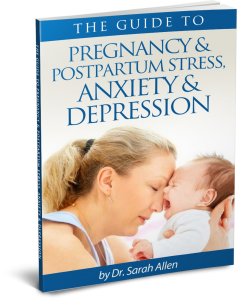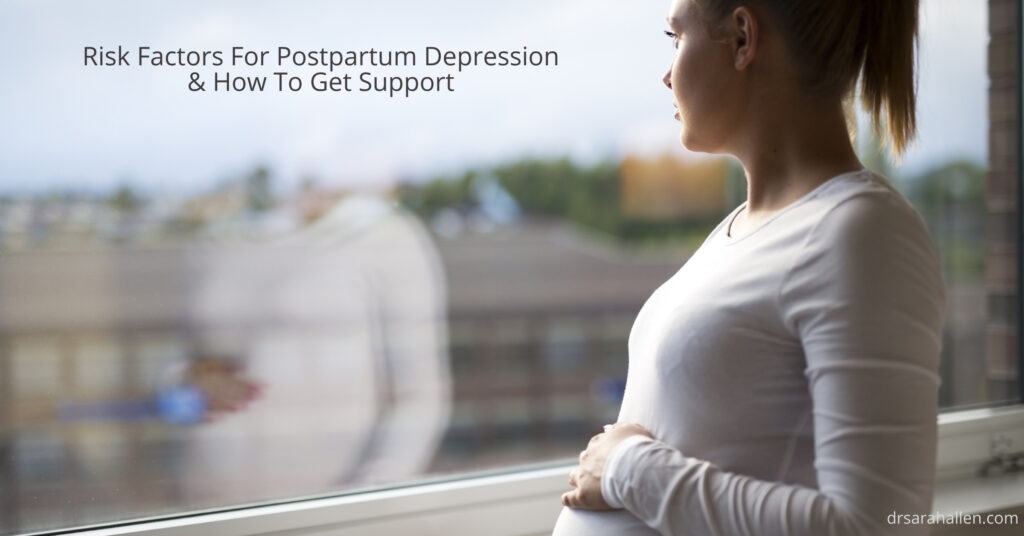
Pregnancy insomnia is a common issue that many moms-to-be face. Struggling to get a good night’s sleep can affect your energy levels, mood, and overall well-being. Caring for your sleep health during pregnancy is important for both you and your baby but with the right strategies, you can improve your sleep quality which of course makes your day times easier too.
I have written an article for the Postpartum Depression Alliance of Illinois about How To Cope With Pregnancy Insomnia which I am re-posting here.
Overview of Pregnancy Insomnia
Pregnancy insomnia is a sleep disorder that affects many pregnant women. It occurs when you have trouble falling asleep or staying asleep during pregnancy. This insomnia can lead to feeling tired during the day and having low energy levels, which can impact daily life.
Various factors contribute to pregnancy insomnia. Hormonal changes are a significant reason for sleep disturbances. As your body prepares to support your growing baby, hormone levels fluctuate, disrupting your sleep patterns. Additionally, physical discomfort from a growing belly, back pain, and frequent trips to the bathroom can make it hard to get restful sleep.
Stress and anxiety can also play a role in pregnancy insomnia. Worrying about the baby, childbirth, and future responsibilities can keep your mind active at night, preventing you from relaxing enough to sleep. Understanding what pregnancy insomnia is and what causes it can help you find ways to manage and reduce its effects.
Symptoms and Causes of Pregnancy Insomnia
Recognizing the symptoms of pregnancy insomnia is essential for managing this condition. Common symptoms include difficulty falling asleep, waking up frequently during the night, having trouble going back to sleep, and feeling tired or unrefreshed in the morning. These symptoms can vary in intensity and may change as the pregnancy progresses.
Several factors cause pregnancy insomnia. One primary cause is hormonal changes that occur throughout pregnancy. Increased progesterone levels can make you sleepy during the day but disrupt your sleep at night. Physical changes also contribute to insomnia. As your pregnancy advances, finding a comfortable sleeping position becomes more challenging. Heartburn, leg cramps, and the need to urinate frequently can further interrupt your sleep.
Emotional factors, such as stress and anxiety about motherhood, can also lead to insomnia. Worrying about the baby’s health, childbirth, and adjusting to life with a new family member can keep your mind racing at night. By understanding these symptoms and causes, you can take steps to address pregnancy insomnia and improve your sleep quality.
Management and Treatment of Pregnancy Insomnia
Managing pregnancy insomnia involves several strategies to improve sleep quality. Creating a relaxing bedtime routine can help signal your body that it is time to sleep. Activities such as taking a warm bath, reading a book, or practicing deep breathing exercises can help you unwind before bed.
It is essential to maintain a consistent sleep schedule. Going to bed and waking up simultaneously daily can help regulate your body’s internal clock. Limiting screen time before bed is also essential, as the blue light from phones and computers can interfere with your ability to fall asleep.
1. Comfortable Sleep Environment: Ensure your bedroom is quiet, dark, and cool. Investing in a good mattress and pillows can provide additional support and comfort.
2. Healthy Eating Habits: Avoid large meals, caffeine, and spicy foods close to bedtime. These can cause discomfort and make it harder to sleep.
3. Physical Activity: Gentle exercise during the day, such as walking or prenatal yoga, can improve sleep by reducing stress and helping you feel more tired at night.
If these strategies do not help, consult with your healthcare provider. They may recommend additional treatments, including medication or therapy, to help manage your insomnia safely during pregnancy.
Prevention Tips for Pregnancy Insomnia
Preventing pregnancy insomnia can make your pregnancy more enjoyable and less tiring. Here are some practical tips to help you get better sleep:
1. Stay Hydrated, But Wisely: Drink plenty of fluids throughout the day, but reduce fluid intake in the hours before bed to minimize nighttime bathroom trips.
2. Watch Your Diet: Eat a balanced diet rich in nutrients. Avoid heavy or spicy meals before bedtime to prevent heartburn or indigestion, which can disrupt sleep.
3. Establish a Bedtime Routine: Develop a calming bedtime routine to help your body recognize when it is time to sleep. Activities such as reading, listening to soft music, or practicing relaxation techniques can be beneficial.
4. Use Pillows for Support: Use extra pillows to support your back, stomach, and between your legs. This can alleviate some of the physical discomforts that disrupt sleep during pregnancy.
These preventive measures can help minimize sleep disturbances and improve sleep quality during pregnancy. Remember, your sleep health is essential for you and your baby.
Coping with pregnancy insomnia can be challenging, but understanding its symptoms, causes, and prevention methods can significantly improve your sleep quality and mood. By incorporating effective management strategies and preventive tips, you can reduce the impact of insomnia on your life.
Prioritizing your sleep enhances your well-being and if you are finding it challenging to manage pregnancy insomnia on your own, I am here to help. I can provide you with personalized recommendations to improve sleep and also work with you to develop coping strategies for any anxiety or depression issues that are affecting your sleep.

Dr. Sarah Allen has 25+ years of experience in private practice helping women to transition to being the mom they want to be. She is the Founding Director of the statewide non-profit Postpartum Depression Alliance of IL. She also specializes in pregnancy loss & infertility & has published research on postpartum depression and traumatic childbirth.
If you would like to work with Sarah, please phone her at 847 791-7722 or on the form below.
If you would like to read more about me and my areas of specialty, please visit Dr. Sarah Allen Bio. Dr. Allen’s professional license only allows her to work with clients who live in IL & FL & the UK and unfortunately does not allow her to give personalized advice via email to people who are not her clients.
Dr. Allen sees clients in person in her Northbrook, IL office or remotely via video or phone.

What Can I Read That Helps Me While I Am Waiting For My First Appointment With Sarah?
If you feel that you may be experiencing pregnancy or postpartum mood disorder, or worry that you may be at risk of developing it, please download my free booklets below.
See each specific webpage to download one or many.





























